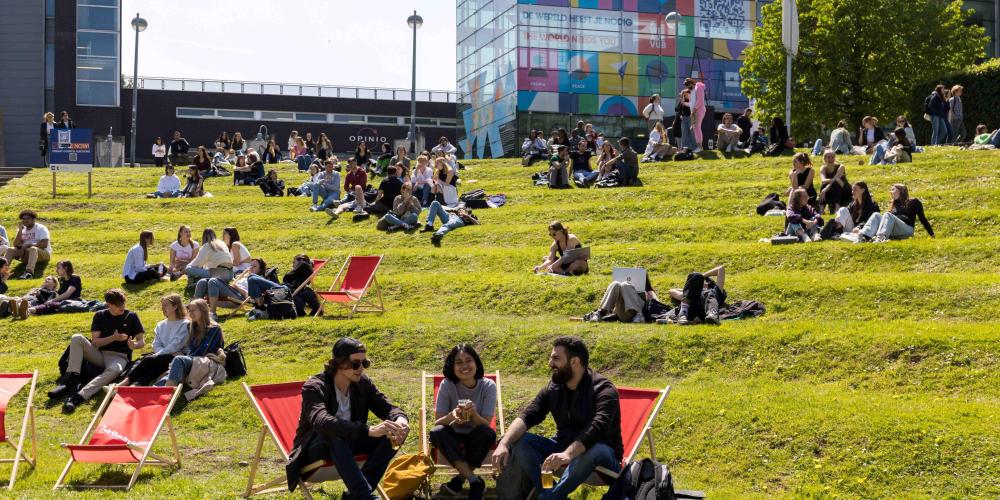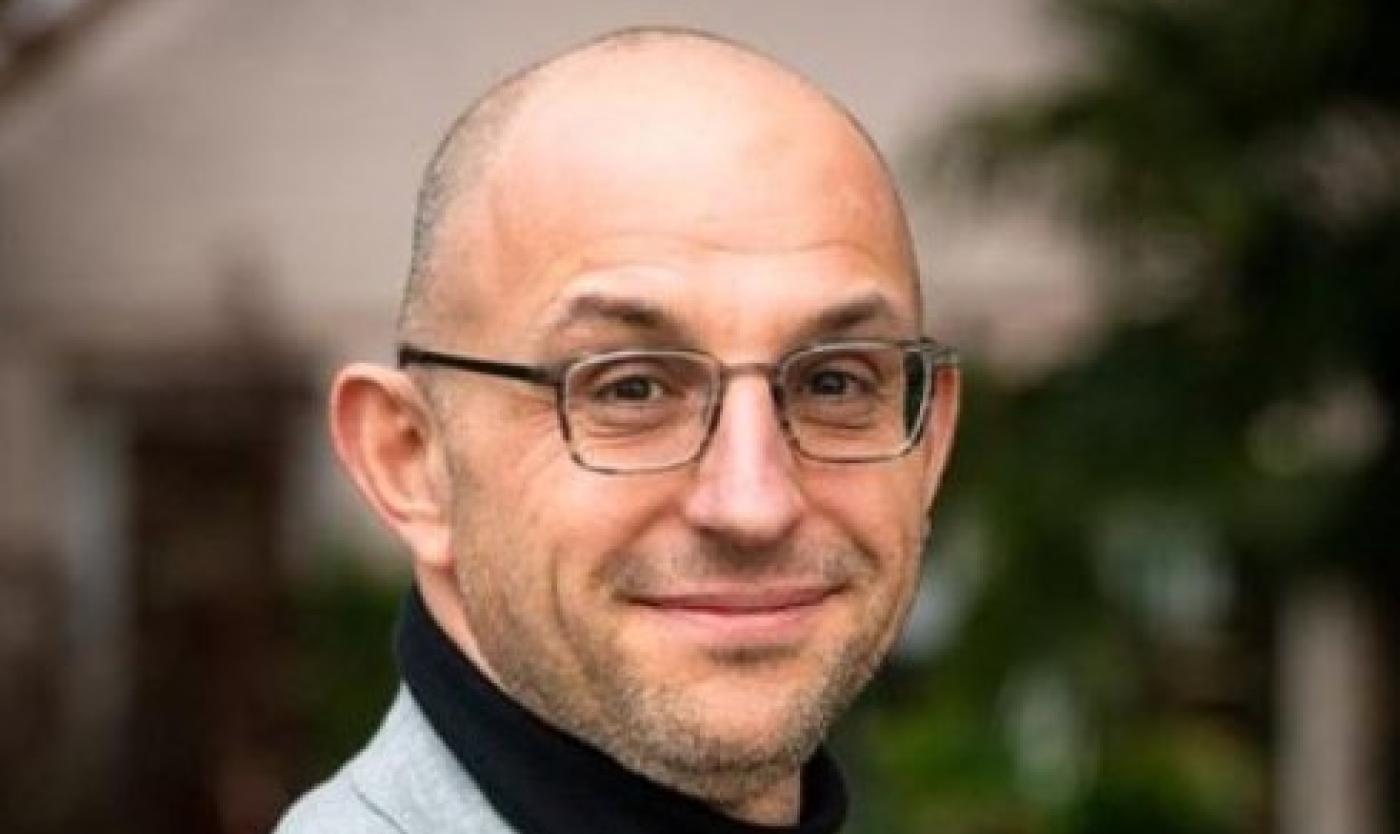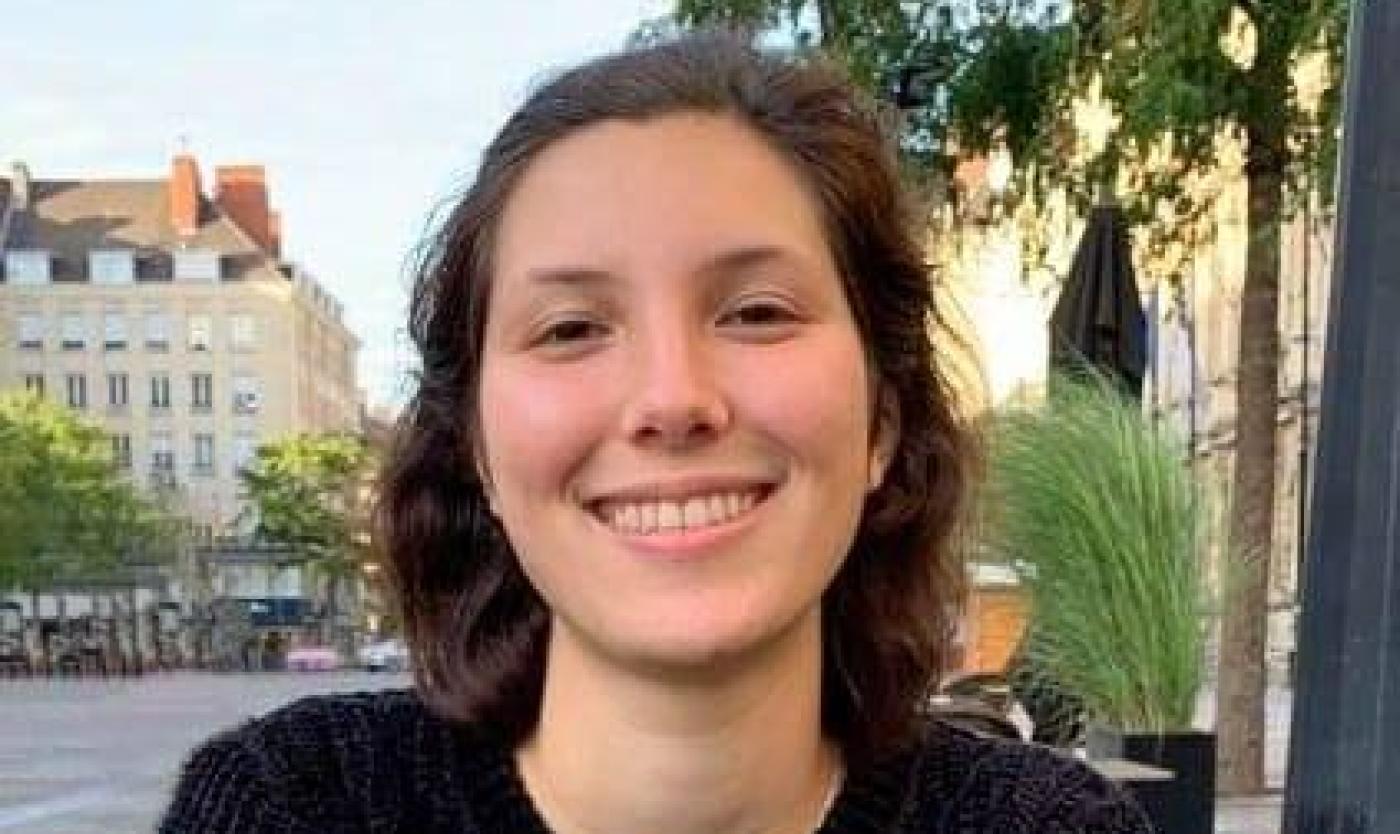
A quarter of VUB students are international; half come from a multilingual home. “Multilingualism has become the norm in the daily lives of our students,” confirms Prof. Wim Vandenbussche. He co-founded the 'Charter on multilingualism' that will be signed this week by rector Jan Danckaert (VUB) and general director Dennis Cluydts (Erasmushogeschool Brussel).
A Charter on multilingualism and linguistic diversity – to give it its official name – why is it necessary?
Wim Vandenbussche: "Because our students are becoming increasingly multilingual. It’s a reality that not only plays out on our campuses, but also beyond them. Brussels is one of the most multilingual places in the world, with more than 100 different languages spoken. If you come to study in our capital city, this multilingualism is something you cannot possibly ignore. With this charter, we want to affirm our commitment to supporting initiatives related to language policy and diversity more than ever. Recognizing this linguistic richness is also important for our students to feel ‘accepted.’ Whether you speak Arabic, Turkish, Lingala or a lingua franca like English or French, you belong; every language is equally valuable."
How do you support this multilingualism concretely?
"There are lots of initiatives. For example, we allow our students to consult multilingual sources, we encourage them to share scientific insights in multiple languages, to debate multilingually, and so on. But we also integrate the everyday multilingual reality into our courses. A great example is WeKonekt, where we organize educational activities on location in the city. In addition, our medical students have lessons in 'medical French', for example, and our economics students have ‘business English’. At the same time, we do a lot of research into multilingualism, which also responds to the needs of the city. Like the Language Barometer, for example, which charts language use in Brussels and the Vlaamse Rand [the Flemish periphery around Brussels] and which we participate in every four years."

Which initiatives have already proven their success?
"One initiative that works well is the ALEF program, our Arabic language classes that VUB organizes for young children in Brussels and which just won first prize from the European Language Label. VUB considers it part of its social role in Brussels to offer these language classes outside the traditional religious sphere. Lessons in Standard Arabic strengthen the language base of young children growing up (partly) in the language. We know that a strong foundation in the mother tongue helps with the acquisition of other languages like Dutch and French. At the annual presentation of diplomas, we also get to interact with the parents, which is great. We hear touching reactions like: 'This is the first time in all our years in Brussels that our language is not seen as something problematic, but rather as something with added value.' Another example is the bilingual teacher training organized by our association partner Eramushogeschool Brussel. The training is unique in Flanders and really prepares teachers for a multilingual classroom environment. Closer to home, we ourselves organize very successful multilingual education days for teachers and principals who offer immersion education."
What challenges remain?
"Fighting the discourse that multilingualism is a problem. And that 'learning difficulties are due to that multilingualism.’ That’s just not correct, but it’s a persistent prejudice we’re still fighting against. There’s also the rarely expressed but very real friction between what some call ‘good’ or ‘bad’ multilingualism. Where the former implies, for example, English-French or Dutch-German – languages linked to a rather rosy socio-economic situation – and the latter implies, for example, Farsi-Armenian or Arabic-Tamazight, which are then presented as inferior. Convincing people that multilingualism is always an added value is tough. As is getting the right political backing to achieve this. In Brussels, we’re lucky to have a ministry responsible for the promotion of multilingualism, but at other political levels, there’s less enthusiasm, we notice."
"When you hear a student say, 'I feel accepted as an individual by my university because of the multilingual person I am,' I think we've done something right.”
Does multilingualism affect the way you offer education?
"Without a doubt. Every student who starts with us takes a Dutch language test that’s not mandatory but is highly encouraged. For students who don’t yet meet a certain level, we provide an intensive mentoring program. When I graduated here 30 years ago, that didn’t exist yet. Now it seems so obvious to us. And that commitment goes beyond the walls of our university. In early March, there will be an EUTOPIA* Languages Week here, focusing on international multilingualism."
How does this multilingualism translate on campus?
"What’s great is that you don't just hear the different languages, you see them. A good example of this is our language wall, where you can read Henri Poincaré's quote, 'Thinking must never submit itself' – words that are part of VUB philosophy – in dozens of languages. To display this so visibly in a public place is also a form of recognition for our students. We also integrate this multilingualism into the activities we organize. For example, we are organizing the World Congress of Dutch Studies on campus in 2025, for the first time in 60 years. The theme? Dutch in a multilingual context."
Finally, what about the tension between Dutch (a small language) as the official teaching language and the multilingualism of Brussels and the international student audience at VUB in particular? Why not just teach in English, the European lingua franca?
"Dutch is the legally established teaching language in the Flemish Community; as a Dutch-speaking institution with a strong language-political history in Brussels, we naturally adhere to it. Therefore, Dutch as the teaching language at VUB is in no way up for discussion. We know that the international educational landscape is becoming increasingly international. If, as a university, you limit yourself to a single language and don’t create space for other languages, you’ll stagnate. So it’s about being smart and making maximum use of the multilingual opportunities within the current decree framework. A good example here is our multilingual bachelor’s and master’s degrees in Linguistics and Literary Studies, which exist alongside the Dutch-language ones and attract a huge number of additional foreign students. One does not exclude the other. For us, this tension that is often alluded to doesn’t exist for us. It's not ‘either/or,’ it’s ‘both/and.’
Samantha Perez from Venezuela chose a multilingual master's degree
Samantha Perez (27, from Venezuela) graduated from VUB last year with a Multilingual Master in Linguistics and Literary Studies and is currently working on her doctorate there.
“The option of being able to do my studies in English and Spanish – which is only possible at a few universities – brought me to Brussels. At VUB, from day one, I felt that my language and cultural background were valued, and they didn’t hinder me from communicating or engaging in discussions. That was the case not only in the auditorium, but outside it too, on campus. Also, I’ve always seen the fact that you share that experience with so many other nationalities from all over the world as enriching.
I’m currently studying Dutch at the CVO (Center for Adult Education), which is on the VUB campus. I’m making progress, but actually speaking it still stresses me. (laughs) Fortunately, there are plenty of opportunities to practice. During classes, there’s always the chance to share your language experiences, and in the cafeteria, for example, there are ‘language tables’ where you can practice a language of your choice with other students during lunch. You know, I’m in Brussels, far away from home, and yet because of this multiculturalism and multilingualism at VUB, I feel kind of at home here."

Bio Wim Vandenbussche
Wim Vandenbussche is Assignment Holder for Multilingualism and Partnerships at VUB, as well as professor of Dutch Linguistics and president of the Academic Center for Language Education (ACTO). He serves on the Brussels Council for Multilingualism and is also president of the International Association for Dutch Studies.